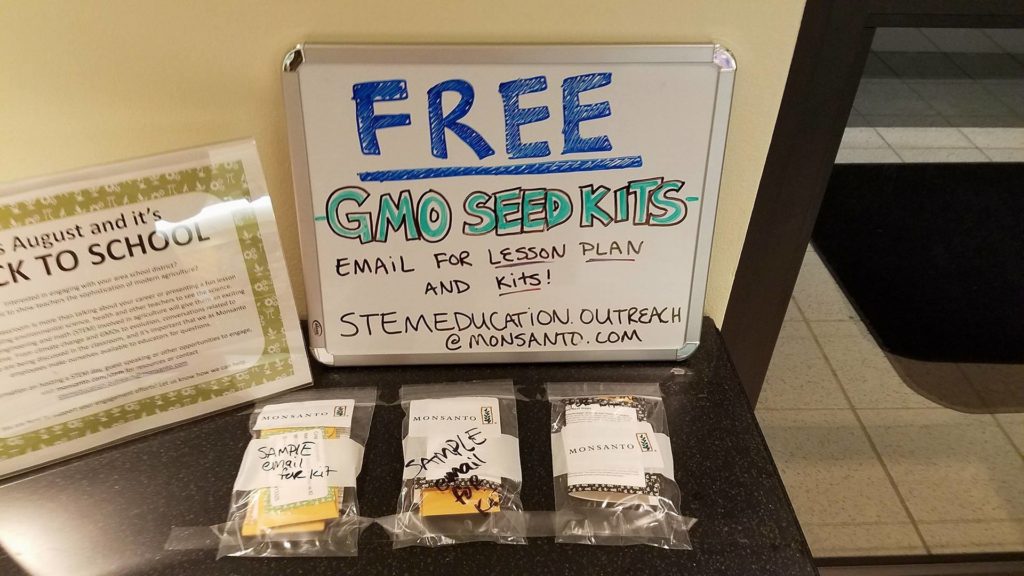EU Commission
The Commission has been debating the extension of the licensing for herbicide glyphosate, the active ingredient in Round Up. There is a lot of pressure both for renewing it, as well as not. As a sort of compromise, the Commission has proposed renewing it for 10 years instead of the usual 15.
In a surprise last minute move, the Commission decided to put the matter to a vote of the EU member states, with the default action being no renewal at all, unless a qualified majority votes in favor of extension. This seemed to reflect some irritation at member states like France and Germany which campaigned hard for a system of qualified voting based on their large populations, only to opt out of issues like this entirely, effectively using their qualified status to silently sink a large number of measures. The EU Commission would like the qualified status to not be taken into account when no vote is cast, and this is all apparently to make a point on this issue.
Until now, they have received a response from 8 out of 28 member states, but decline to say which ones.
The Fake ECI
I’ve posted before about the European Citizens’ Initiative that was staged on this issue. It’s just not possible to gather 1,000,000 signatures in Europe without any reports of public events mentioned on the Internet, besides two in Brussels put on by Greenpeace. Also articles I posted about it got little attention from the Internet, suggesting that even if people were signing the initiative, no one was really interested enough in it to research it on the Internet. It’s just 1.3M signatures that appeared out of nowhere. Activists organizations are touting heavily the merits of this fake ECI.
Monsanto, Bayer and Syngenta
Monsanto and Bayer, who are in the process of merging, have remained largely silent on the issue. While they both have seed varieties that are Round Up Ready, and apparently dependent on Round Up, they both would seem to benefit far more by having a patented product removed from the market, allowing more room for patented alternatives. Syngenta has even gone so far as to announce it has an patentable alternative in the pipeline.
The Activists
While it’s no secret activist organizations often act according to business interests, it seems a little incredible they are openly towing the line of the pesticide companies. In fact they seem to be doing everything possible to boost corporate profits.
While the pesticide companies remain silent, the activists speak on their behalf. The activists seem to care less about the impact this would have on small farmers and their communities.
The Farmers
The farmers are lobbying very hard to keep glyphosate on the market, because it’s a tool many of them depend on, and they are simply screwed if they are forced onto another more expensive patented product.
Restrictions
Again and again the subject of restrictions come up. Glyphosate would be a much less contaminating substance if it was only used on farms, and in a way that minimized unnecessary contamination. For example forbid it’s use by private parties and in public spaces, and establish clear rules when it can be used on a farm.
Even though this comes up again and again, there’s been no action from the Commission on this idea.
France
France is the only member state to publicly announce they have responded to the Commission on the issue. The response however is far from clear.
The Macron government says they reject the 10 year renewal proposal as put forth by the Commission. At the same time they say they will ask the Commission to put forth another plan for phasing out the herbicide. They maintain that for now farmers need to keep using the product.
Macron suggested that he thought it might be good if glyphosate remained on the market for the rest of his term in office, about 5 years. Another government spokesperson suggested 7 years might be better. Macron himself firmly denies any time limit has been given.
This seems to be intended to keep all parties a little bit happy, and undermine the EU commissions effort to base the decision on a qualified majority. The farmers support this position, because they say before they had nothing.
Germany and The Netherlands
Both these countries recently had elections, and are in the process of forming coalition governments. Here in the Netherlands there doesn’t seem to be any light at the end of the tunnel, and it looks to be very difficult in Germany as well.
As far as I know nothing has been said about this in the Netherlands, and I don’t expect any issue to be taken on this. As far as I know, we don’t even have an acting agriculture minister, because the last one quit in the middle of the eggs being contaminated by Fipronil scandal.
In Germany, Chancellor Angela Merkel has said if it were up to her party, she would like to renew glyphosate and help the farmers. She is however in the process of forming a coalition, and it depends on the other parties too. By custom, when there is no agreement, there is no position taken, and it seems likely Germany won’t take a position.
The UK
The UK seems likely to support a renewal of the glyphosate license, but does this matter? Are they even still a voting member of the EU, or will they choose to vote under the circumstances? How does this fit in with the EU Commission requirement of a qualified majority?
The Vote
The vote on this issue was due at the beginning of October, but the Commission now says it will be considerably after that. The deadline is the end of the year when the current glyphosate license ends. Are we looking at another short term renewal? This would certainly be the European way.


